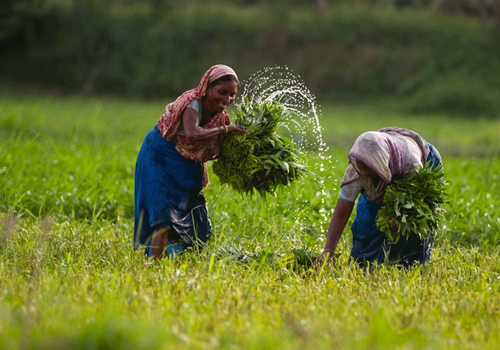
Market Dynamics in Agricultural Commodities
The Market Dynamics in Agricultural Commodities project delves deeply into the shifting landscape of agricultural trade, production, and pricing in Bangladesh. Utilizing advanced data analytics, geospatial mapping, and comprehensive market surveys, this initiative tracks the movement of key commodities from farm to market, identifying bottlenecks, price volatility factors, and barriers to market entry for smallholder farmers. The research pays special attention to supply chain disruptions, seasonal trends, demand-supply mismatches, and the impact of policy changes and climate variability on market behavior. Through a blend of quantitative modeling and qualitative field insights, the project delivers a nuanced understanding of agricultural market forces. Recommendations from this work support farmers, traders, policymakers, and agribusinesses in making informed decisions that strengthen food security, enhance farmer incomes, and promote a resilient agricultural economy.
Rural Health Data Mapping
The Rural Health Data Mapping initiative is dedicated to closing the information gap in healthcare access, delivery, and outcomes across Bangladesh’s remote and underserved rural communities. Drawing on extensive data collection, GIS technology, and community-based participatory approaches, the project systematically documents the availability and distribution of health facilities, workforce resources, essential medicines, patient flows, and service gaps. Special focus is placed on maternal and child health, disease prevalence, and the challenges of health infrastructure in rural areas. The mapping exercise enables precise identification of underserved regions, inequities in health resource allocation, and priority areas for intervention. The resulting health data maps and analytical findings provide evidence for government agencies, health NGOs, and development partners to design targeted programs, improve resource distribution, and monitor progress toward universal health coverage in rural Bangladesh.
School Connectivity & Mobile Learning Survey
The School Connectivity & Mobile Learning Survey investigates the digital readiness and technology adoption landscape of Bangladesh’s schools, with a spotlight on mobile learning solutions. Through surveys of school administrators, teachers, students, and parents, this project assesses internet connectivity, device access, digital literacy, and the integration of e-learning platforms at primary and secondary education levels. The study also explores barriers to connectivity—such as infrastructure deficits, affordability, and socio-cultural factors—and evaluates the impact of recent digital initiatives. By mapping the current state and disparities in access, the survey delivers actionable insights and recommendations to help policymakers, education technology providers, donors, and communities expand digital infrastructure, foster innovation in teaching and learning, and bridge the digital divide for every Bangladeshi child.
